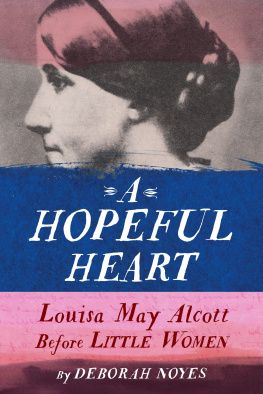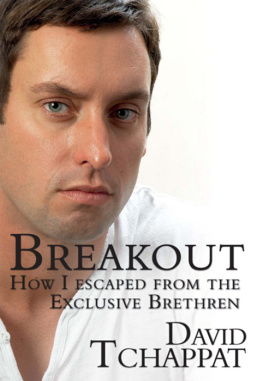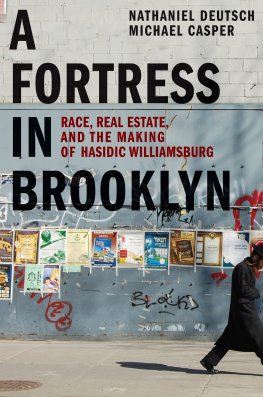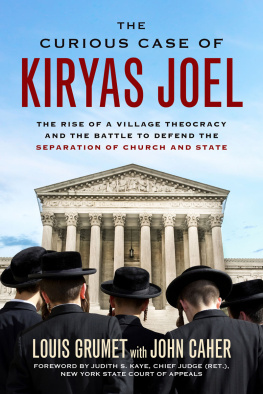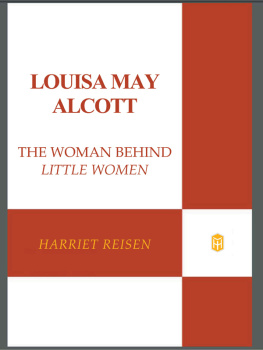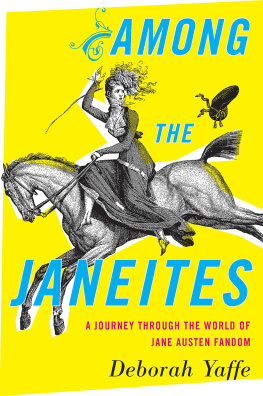Thank you for purchasing this Simon and Schuster eBook.
Sign up for our newsletter and receive special offers, access to bonus content, and info on the latest new releases and other great eBooks from Simon & Schuster.

or visit us online to sign up at
eBookNews.SimonandSchuster.com
We hope you enjoyed reading this Simon and Schuster eBook.
Sign up for our newsletter and receive special offers, access to bonus content, and info on the latest new releases and other great eBooks from Simon & Schuster.

or visit us online to sign up at
eBookNews.SimonandSchuster.com
Feldman gives us special insight into a closed and repressive world... Her memoir is fresh and tart and utterly absorbing.
Library Journal
In the tradition of Ayaan Hirsi Alis Infidel and Carolyn Jessops Escape, Unorthodox is a captivating story about a young woman determined to live her own life at any cost.
T he Satmar sect of Hasidic Judaism is as mysterious as it is intriguing to outsiders. In this arresting memoir, Deborah Feldman reveals what life is like trapped within a religious tradition that values silence and suffering over individual freedoms.
The child of a mentally disabled father and a mother who abandoned the community while her daughter was still a toddler, Deborah was raised by her strictly religious grandparents, Bubby and Zeidy. Along with a rotating cast of aunts and uncles, they enforced customs with a relentless emphasis on rules that governed everything from what Deborah could wear and to whom she could speak, to what she was allowed to read. As she grew from an inquisitive little girl to an independent-minded young woman, stolen moments reading about the empowered literary characters of Jane Austen and Louisa May Alcott helped her to imagine an alternative way of life. She had no idea how to seize this dream that seemed to beckon to her from the skyscrapers of Manhattan, but she was determined to find a way.
The tension between Deborahs desires and her responsibilities as a good Satmar girl grew more explosive until, at the age of seventeen, she found herself trapped in a sexually and emotionally dysfunctional marriage to a man she had met for only thirty minutes before they became engaged. As a result, she experienced debilitating anxiety that was exacerbated by the public shame of having failed to immediately consummate her marriage and thus serve her husband. But it wasnt until she had a child at nineteen that Deborah realized more than just her own future was at stake, and that, regardless of the obstacles, she would have to forge a pathfor herself and her sonto happiness and freedom.

BEN LAZARM
DEBORAH FELDMAN was raised in the Hasidic community of Satmar in the Williamsburg section of Brooklyn, New York. She attends Sarah Lawrence College and lives in New York City with her son.
MEET THE AUTHORS, WATCH VIDEOS AND MORE AT
SimonandSchuster.com
THE SOURCE FOR READING GROUPS
JACKET DESIGN MONICA GUREVICH/JULIE METZ LTD.
JACKET PHOTOGRAPH VANESA MUOZ/TREVILLION IMAGES
COPYRIGHT 2012 SIMON & SCHUSTER


 | Simon & Schuster
1230 Avenue of the Americas
New York, NY 10020
www.SimonandSchuster.com |
Copyright 2012 by Deborah Feldman
All rights reserved, including the right to reproduce this book or portions thereof in any form whatsoever. For information, address Simon & Schuster Subsidiary Rights Department, 1230 Avenue of the Americas, New York, NY 10020.
First Simon & Schuster hardcover edition February 2012
SIMON & SCHUSTER and colophon are registered trademarks of Simon & Schuster, Inc.
All photographs courtesy of the author.
The Simon & Schuster Speakers Bureau can bring authors to your live event. For more information or to book an event, contact the Simon & Schuster Speakers Bureau at 1-866-248-3049 or visit our website at www.simonspeakers.com.
Designed by Nancy Singer
Library of Congress Cataloging-in-Publication Data
Feldman, Deborah.
Unorthodox : the scandalous rejection of my Hasidic roots / Deborah Feldman.
p. cm.
1. Feldman, Deborah, 1986 2. JewsNew York (State)New YorkBiography. 3. HasidimNew York (State)New YorkBiography. 4. HasidimNew York (State)New YorkSocial conditions. 5. New York (N.Y.)Religion. I. Title.
F128.9.J5F525 2012
974.7'044092dc22
[B] 2011001386
ISBN 978-1-4391-8700-5
ISBN 978-1-4391-8702-9 (ebook)
A Note from the Author
Satu Mare (Hungarian for Saint Mary), or Satmar, in Yiddish, is a city on the border of Hungary and Romania. So how did a Hasidic sect come to be named after a Christian saint? Well, on his mission to rescue prominent Jews from certain death during World War II, Hungarian Jewish lawyer and journalist Rudolf Kasztner saved the life of the rabbi from that city. This rabbi later emigrated to America and amassed a large following of other survivors, forming a Hasidic sect that he named after his hometown. Other surviving rabbis followed suit, naming their own sects after the towns they had come from in an effort to preserve the memory of the shtetls and communities that had been wiped out in the Holocaust.
Hasidic Jews in America eagerly returned to a heritage that had been on the verge of disappearing, donning traditional dress and speaking only in Yiddish, as their ancestors had done. Many deliberately opposed the creation of the State of Israel, believing that the genocide of the Jews had come as a punishment for assimilation and Zionism. Most important, though, Hasidic Jews focused on reproduction, wanting to replace the many who had perished and to swell their ranks once more. To this day, Hasidic communities continue to grow rapidly, in what is seen as the ultimate revenge against Hitler.
The names and identifying characteristics of everyone in this book have been changed. While all the incidents described in this book are true, certain events have been compressed, consolidated, or reordered to protect the identities of the people involved and ensure continuity of the narrative. All dialogue is as close an approximation as possible to actual conversations that took place, to the best of my recollection.
Contents
Unorthodox

Prologue
On the eve of my twenty-fourth birthday I interview my mother. We meet at a vegetarian restaurant in Manhattan, one that announces itself as organic and farm-fresh, and despite my recent penchant for all things pork and shellfish, I am looking forward to the simplicity the meal promises. The waiter who serves us is conspicuously gentile-looking, with scruffy blond hair and big blue eyes. He treats us like royalty because we are on the Upper East Side and are prepared to shell out a hundred bucks for a lunch consisting largely of vegetables. I think it is ironic that he doesnt know that the two of us are outsiders, that he automatically takes our existence for granted. I never thought this day would come.
Next page


